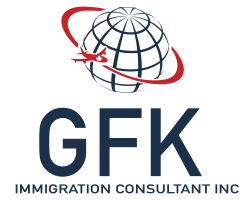
Other Ways to Fast-Track PR
As a foreign national in Canada, there are no better news than getting an Invitation to Apply (ITA) for permanent residence (PR) through an Express Entry draw. About a month ago, the Immigration, Refugees and Citizenship Canada (IRCC) refreshed its targets for getting PR or citizenship through family reunification with the Parents and Grandparents (PGP) program.
Thankfully, IRCC has also cut the threshold for health insurance under the super visa to help reunite more families with Canadian citizens and permanent residents. If these programs are out of your reach, it pays to think about the ways to chalk a higher score on the Comprehensive Ranking System (CRS). After all, if you hit the cut-off CRS points, you are likely to get invited to apply for PR via an Express Entry program.
Off the back of that, one thing most foreigners do not know is that getting foreign work experience is akin to speeding up your road to Canadian PR. For most people, this is as easy as moving back to your home country to put in some work hours ahead of your application.
Table of Contents
First up – what’s the Comprehensive Ranking System (CRS)?
Like most G7 countries, Canada uses a bevy of scoring systems pretty much across its government and provincial vertical to gauge risk, eligibility, and qualifications. The Financial Consumer Agency of Canada (FCAC), for example, encourages banks and financial houses to use a FICO score to rate applicants for loans and lines of credit.
Gaming regulators like the Alcohol and Gaming Commission of Ontario, on their end, carry out a multi-prong eligibility assessment for providers applying to supply money-based or free casino games and sports betting.
The same goes for the Comprehensive Ranking System (CRS) under the IRCC. This is a 1200-point scoring system that helps skilled workers immigrate to Canada through Express Entry draws.
As a foreigner after a worker visa, permanent residence, or better yet, citizenship, racking up your CRS score is an end-all be-all. You cannot change things, such as your age (worth up to 110 CRS points), but you can build up your score on grounds like education, work experience, and provincial nomination.
Going home to get more CRS points tied to work experience
Many foreign nationals in Canada do not realize that heading back home could be a hidden blessing for their PR chances. Foreign work experience can add up to 50 points to your CRS score under what IRCC calls the Skill Transferability Factors. These extra points often make the difference between getting an ITA or waiting for the next draw.
Let’s look at a real example to see how this works. Meet Aisha, a 28-year-old marketing specialist with a bachelor’s degree who scored CLB 9 on her English test. After studying in Canada, she worked for two years on her PGWP. Her CRS score hits 482 points, which doesn’t cut the mustard in recent draws that call for well above 500.
When her PGWP expires, Aisha returns to Mumbai and lands a job in her field. After two years of working there, she recalculates her CRS score. Now she has those extra points for foreign work experience combined with her Canadian education and work history.
Her new score is 532 points, which is plenty to get her on the next ITA list. In case there are many qualified candidates and she won´t get on the next ITA list, at least her new score serves as a godsend tie-breaker.
It’s a no-brainer that you need to leave Canada to perk up your CRS points based on foreign work experience. Of course, you can go to any country that is willing to accept and hire you. But the chances that you will land a job sooner and bang out more experience in your home country are higher.
The catch here (and it is a big one) is that foreign work experience must be skilled. Think TEER 0, 1, 2, or 3. Not just that; these points are chalked based on how your foreign work ties to other factors (read: Canadian work experience or language skills).
You will bag the most CRS points (maxed out at 50) when you pair at least three years of foreign work with either CLB 9 language scores or 2+ years of Canadian work. Even with just one or two years of foreign work experience, you can still pocket 13 to 25 extra points, which are often enough to push you over the line in competitive draws.
What’s more, leaving Canada doesn’t kick you out of the running for Canadian Experience Class (CEC) draws. As long as you’ve clocked at least one year (1,560 hours) of Canadian work experience within the three years before applying, you’re still eligible for CEC-specific draws, which usually have lower cut-offs.
Learning or improving a second language
While you’re away from Canada, putting time into language learning can seriously boost your CRS score. You can earn up to 160 points for language skills alone if you’re applying without a spouse.
Many people retake tests like IELTS, CELPIP, or TEF to push their scores up. Just moving from CLB 9 to CLB 10 can add previous points to your total. Even if English is your primary language, adding French skills can earn you up to 50 bonus points.
Adding another degree
Education is another area where you can gain points while outside Canada. The CRS awards up to 150 points for education (without a spouse). The higher your degree, the more points you get.
Wrapping up
The good news is that your Express Entry profile stays active for 12 months after submission, regardless of where you are. While outside of Canada, research which provinces have nomination streams that match your skills and experience, be it Saskatchewan, Nova Scotia, and Ontario. You can also retake your language tests to bump your CLB level.
Contact us today to explore the possibilities.
GFK Immigration
Gboyega Esan RCIC R708591
Phone: +1 (647) 225-0092
#studyincanada #studyabroad #canada #studyinuk #studyinaustralia #ielts #studentvisa #studyinusa #studyvisa #immigration #canadavisa #visa #education #internationalstudents #overseaseducation #study #canadaimmigration #highereducation #studyoverseas #canadastudyvisa #immigrationconsultant #australia #university #workpermit #canadapr #expressentry #studyineurope #immigrationcanada #Francophone
